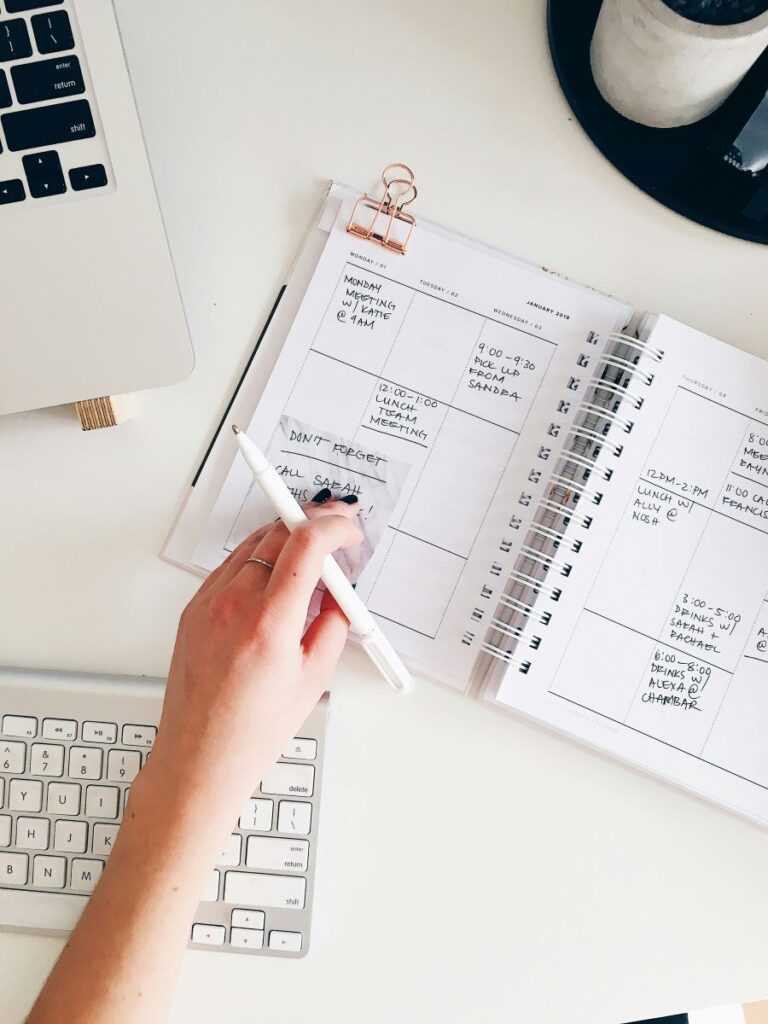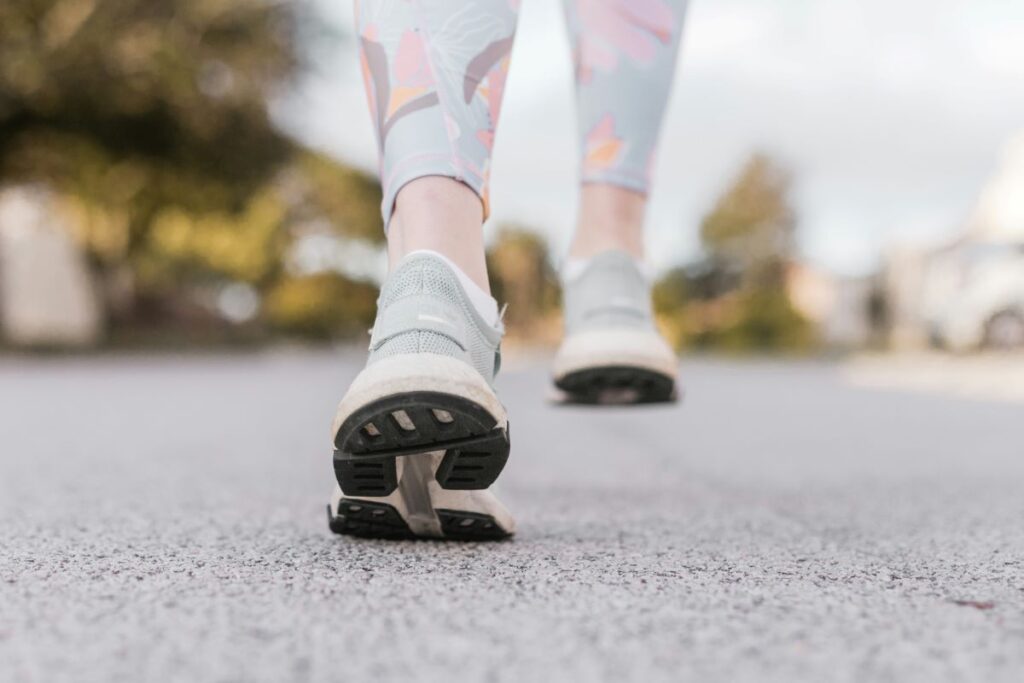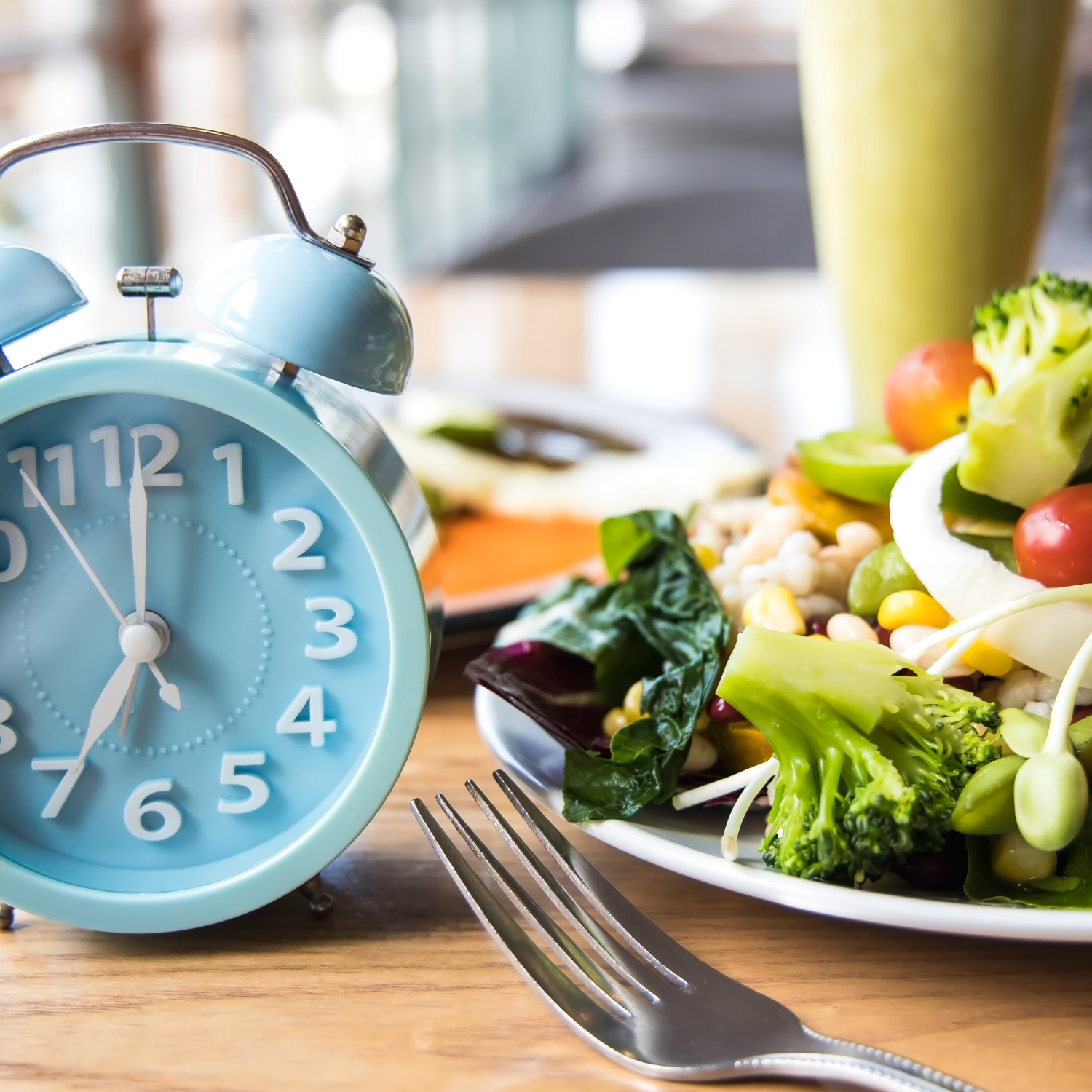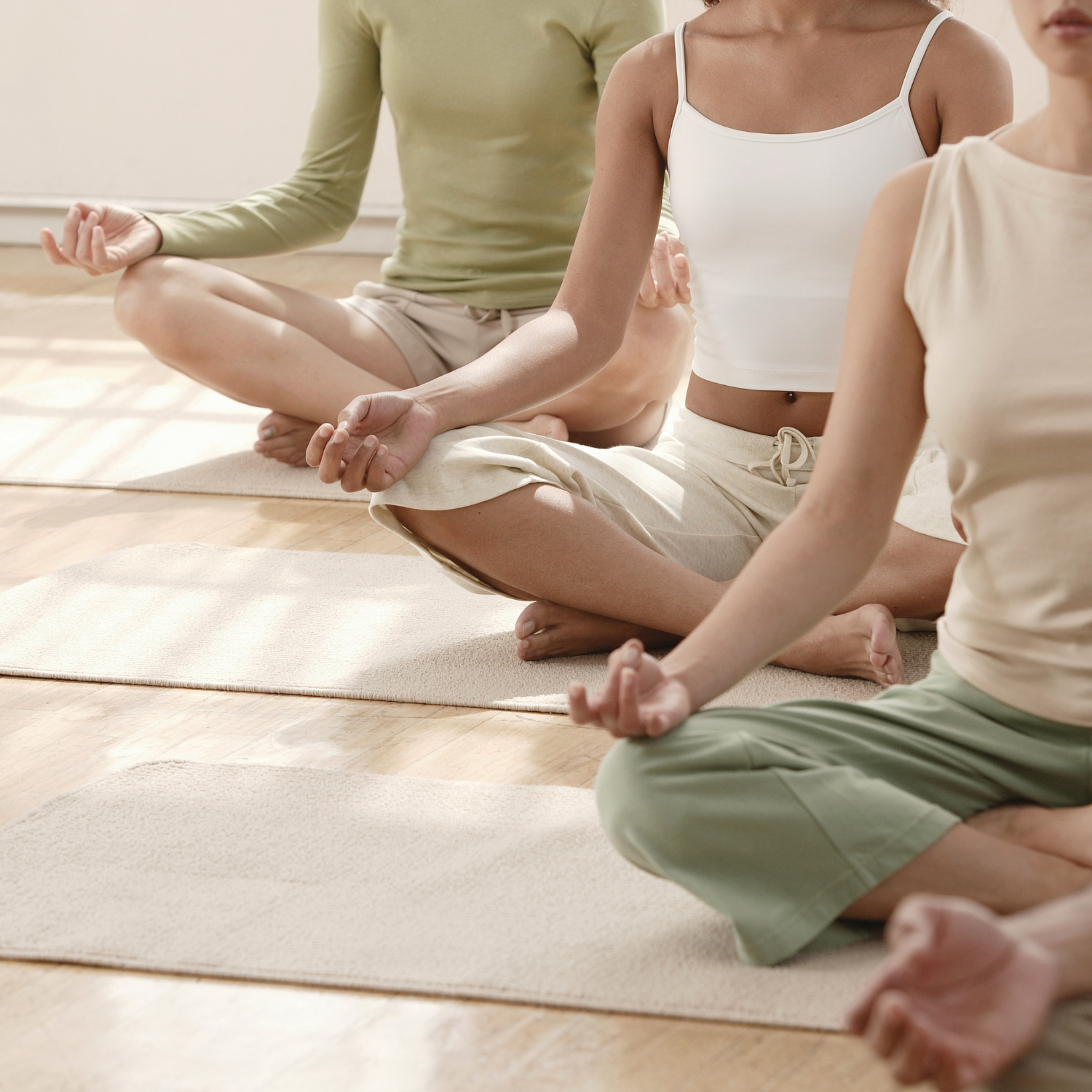How often have you felt frustrated that you don’t have the energy to get everything done and are simply “tired of being tired”? I see you, and I get it. Because I’ve been there … But I’m not anymore. What if I told you that you don’t have to struggle with fatigue and exhaustion every day or the all-too-familiar afternoon slump and brain fog? As a mother, these afternoon crashes are even more challenging because it’s when you need to wrap up work and start the important work of taking care of your family … and yourself! I have simple tips for six areas that you can make small changes in to keep your energy all day and avoid exhaustion and frustration. Are you ready to say goodbye to exhaustion and brain fog? These tips will help you make changes throughout the day so you have more energy for your family and you. The 6 areas are:
- The foods you eat
- What you drink
- Your schedule
- Your environment
- The ways you move
- A good night’s sleep
Spoiler alert! At the end of this post, I’ve included a link to a tool I created so you can make these habits stick day after day.
1. The Foods You Eat

One of the major contributors to sapped energy is blood sugar spikes which are always followed by the inevitable crashes. Blood sugar dictates everything from hunger and cravings to energy and sleep. We feel our best when our blood sugar is balanced and not too high or too low. This helps keep our brain functioning optimally, energy levels stable, and mood balanced. Any food which pushes your blood sugar higher will eventually cause a crash within 1 to 3 hours. Low blood sugar can lead to hunger, difficulty concentrating, fatigue and weakness.
The impact of specific foods on blood sugar levels varies from person to person. Additionally, the context of the entire meal can influence how the body processes sugars. As a general rule, foods that are refined and highly processed are high in simple carbohydrates and sugars and will cause blood sugar spikes.
Food Tips
Try 1 or more of these tips which you can start to implement today:
- Eat a savory or high-protein breakfast. Think eggs, yogurt, avocado and vegetables and fruit when combined with a protein. Breakfast just means the first meal of the day. Eat breakfast when you’re hungry and not at a scheduled time.
- Before you reach for a snack, drink some water. You may just be dehydrated. If you still feel hungry, then check in with yourself to see if you’re bored or tired and just need a break. If you actually are hungry, then eat a snack. Mindfulness Tip: If you’re snacking within 2 hours or less after your last meal, it may be that your meal wasn’t satisfying enough. Consider adjusting it tomorrow.
- Minimize sugary snacks, as they can cause rapid blood sugar fluctuations. Incorporate protein-rich snacks, such as nuts, yogurt, or lean meats, to provide sustained energy between meals.
- Eat slowly and savor meals.
- Stop eating at least 2 to 3 hours before you go to sleep. This will improve your sleep for a high energy day tomorrow.
Mindfulness Tip: As you start implementing one or more of these, spend a few minutes thinking about your body’s reaction to the foods you’re eating. How you feel a few hours after you eat something will give you a general sense of your blood sugar response.
For broader health changes, the goal is to consume a well-balanced diet rich in whole foods, including fruits, vegetables, lean proteins, whole grains, and healthy fats.
2. What You Drink

Now that you know a little about how foods affect your energy, you were probably starting to suspect that the same applies to what you drink. You’re right! Blood sugar spikes apply to beverages in the same way as food. Some tips you can try are:
- Drink plenty of water throughout the day. Dehydration can lead to fatigue. This is more important than you may want to hear. Your target should be 6 to 8 cups per day. Measure out 3 to 4 cups for the morning into a jug and again in the afternoon and use this to refill your glass. Always have your glass or bottle visible and within reach and on your desk, table or space that you’re in. I will share more tips to drink more water in a later blog.
- Moderate caffeine intake especially if you’re sensitive to caffeine. This will differ from person to person but, as a general rule of thumb, try to avoid caffeine after lunch. Studies have shown that caffeine can disrupt sleep if consumed less than 8 to 10 hours before.
- Minimize sugary or flavored beverages. This includes fruit juices – it’s far better to consume your fruit in their natural form.
- Only drink water or caffeine-free, sugar-free (or sugar substitutes) beverages at least 2 – 3 hours before you sleep.
3. Your Schedule

For most moms, each day is filled with scheduled meetings, appointments, kids activities, making meals, and much more. But there is one thing that’s missing from most of our schedules – time for breaks throughout the day. Just as your body goes through cycles while you’re sleeping, a similar process occurs when you’re awake. These intervals are called ultradian rhythms. They are 90-minute intervals and are the body’s signals that it needs a break. So, agreeing that this will not be easy, here are some tips that you can try to relax and rejuvenate throughout the day:
- Schedule at least one 20 to 30-minute break in the morning and one in the afternoon. What you do during this time should be something that helps you reset and refresh for the next set of tasks. You can include deep breathing, stretching or a short walk outside.
- Practice deep breathing exercises in between meetings or appointments. This can be as simple as sitting quietly and taking 5 deep breaths with long exhalations which should take no more than one minute.
4. Your Environment

When it comes to energy and focus, the physical space that you’re in also has a major impact on you. Some of the key things to watch for and improve are:
Lighting
The body’s hormonal reaction to wavelengths of light regulates our circadian rhythm, or biological clock, which affects our cognition, blood pressure, immune system, metabolism, and controls our sleep/wake cycle. There’s no question that natural light is better for us than artificial light. To reap the benefits of natural light, here are some of my favorite tips:
- Go outside and soak up some sunlight even on a cloudy day even if you only have a few minutes to get energized, Add a few deep breaths and you’re ready for the next task.
- Take a morning walk outside before starting your work day. This will get you out in the surrounding light and will enable you to absorb more benefits.
- Take a walk on your lunch break. Even the winter sun will benefit you more than your office lighting can.
- Work outside. If you are able to, take your laptop to a park, or sit outside your office or home.
Air
The quality of air you’re breathing is important. Try one or more of these to boost your energy:
- Open a window.
- Get your desk as close to a window as possible.
- Make sure that you spend time with it open to let fresh air circulate and let the light touch your skin.
Temperature
The comfort level of your environment affects your productivity. In hot environments, the body may divert energy to cool itself, leading to fatigue and dehydration. Extreme temperatures, whether too hot or too cold, can be distracting and hinder concentration, leading to decreased energy and efficiency. If you’re typically in spaces that you can’t control the temperature of, layer your clothing so you can adjust as needed.
5. The Ways You Move

This may seem to be a contradiction but the more you’re physically active, the more energy you will have. I’m sure most of us would agree that we don’t move enough during the day. Many of us are tied to our desk chairs, dining chairs or sitting in a car. Movement and physical activity is a big topic and will definitely be in future blog posts. For now, some tips to make this easier:
- Find opportunities to walk. This could be simply parking further away and taking stairs instead of elevators. These additional movements add up and increase your overall well-being.
- Engage in regular physical activity, including a mix of aerobic exercises, strength training, and flexibility exercises.
Mindfulness Tip: Spend time to think about activities you actually enjoy to make movement a sustainable part of your routine.
6. A Good Night’s Sleep

I’m sure you’re not surprised to see sleep on this list. Good sleep is a fundamental pillar of overall health and energy maintenance. It is during sleep that the body performs essential functions, setting the stage for optimal physical, mental, and emotional functioning during waking hours. Key things to achieve are:
- Aim for 7-9 hours of sleep each night
- Establish a consistent sleep schedule and create a relaxing bedtime routine
- Limit screen time before bed
- Make your bedroom a comfortable and calming space conducive to sleep. Keep the room cool, dark, and quiet.
Wrap-Up
There you have it! My simple tips to help you make changes throughout the day so you have more energy for your family and you. You now have the tools to beat exhaustion and brain fog! Wondering how to start making the changes to your routine? I’ve prepared a FREE tracker that you can download today. The Energize Your Day Tracker is the tool I wish I had when I was trying to make these habits stick. And don’t be surprised if you see other improvements after a few days including better weight management and improved mood. To vibrant days ahead!
YOU have the power to take the steps to mindfully transform your wellness on your personal journey.
The content provided in this post is for informational purposes only and is not intended to be a substitute for professional medical advice, diagnosis, or treatment. Always seek the advice of your physician or other qualified health provider with any questions you may have regarding a medical condition. Never disregard professional medical advice or delay in seeking it because of something you have read in this post.














+ Show / Hide Comments
Share to: